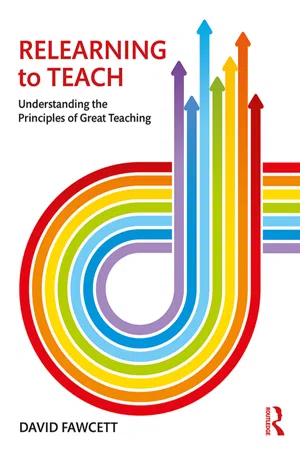Planning the perfect lesson – is there such a thing?
Lesson planning was part of my professional training more than 20 years ago and I, as a young teacher, followed the script for a while without ever questioning the general scheme. It seemed to work and why wouldn’t it? It had both a logical flow and a simple, clear structure: set your objectives, design the activities, and then check for understanding. As one’s experience grows, however, you come to the realization that things should be simple but not simpler than they are, and that attending to nuance and complexity is the basis of excellence. The students were, indeed, learning: they were involved in all activities during the lesson, they had very good scores on tests, both national and international, and their feedback was always positive. Yet, over the course of a school year, small gaps would emerge, and connections between their previous learning and new content seemed to form with more difficulty than I expected. What was I doing wrong? I was planning according to the strategies I had learned and I stuck to the well-known cycle (objectives-activities-feedback) consistently.
Initially, I tried to address the issue by working on details: Should I time this and that activity differently? Should I use a different resource? Should I vary the type of feedback students give? and so on. Although some of these choices had an impact on student performance, it was temporary and it did not bring the desired change in the bigger picture. Then I began to look at the structure of planning as a whole and reversed two of the three components: what if designing assessment prior to activities makes it clearer for me to anticipate student learning? This small decision resulted in an important shift that forced me to look closer at aspects that previously I did not quite connect. Before I would plan for increased difficulty but I would rarely consider complexity of a concept that is, connecting it with more curricular elements. Also, now I could clearly plan for potential misconceptions because as soon as you ask yourself, “How will the student learn this?”, you begin to anticipate difficulties a learner experiences in the process. I also started to look at knowledge, concepts, and skills more holistically and, in the attempt to make them more coherent and integrate them in a whole, I started to plan for longer periods of time. Long-term planning was another change that resulted in greater learning gains because it made me think hard of how these elements enable students to connect, transfer, and consolidate their learning.
(Cristina Milos, Teacher, Rome)
Years of teaching has led me to notice an obsession with planning a “perfect” lesson. Through discussions in staff rooms, meetings or social media, there are many teachers who long to find out the mix that is right. We share, we borrow, we adapt and deliver. We aim to combine various ideas together to make a lesson of pure learning gold and leaves students in awe of the greatness that they have just experienced. There are many opinions on lesson planning as well. “Have you tried using the x framework?” “Make sure your lessons consist of . . . You’ll never fail”. “Always start your lessons with a . . .”. If you seek it, you will find it.
Part of this problem may span from lesson observations. Although not required any more by Ofsted, the necessity for a large number of schools to grade lessons has led to a culture of dependency. How many times over the years have you seen teachers panic more with an observation coming up than they do with the other lessons in that week? How many times after giving detailed feedback do you find the only thing that the teacher wants to know is what grade they got – not how well the planning of the lesson led to improved levels of learning? And why is this the case? Maybe because we feel that this observation is a measure of our performance as a teacher?
Lesson planning may also be hindered by the fact we honestly seek to find a “best method”. We hear of educational panaceas that will “improve learning by X per cent” and “ensure all of your lessons are outstanding”. We genuinely want to do well and the bombardment and confusion about what actually works makes it difficult to see what would be best for us. Then there are school priorities, whether it’s differentiation, literacy, numeracy, SMSC, feedback or more. With good intentions, we then look for ways to get them in our lesson. The culture of being magpies and adopting ideas without fully understanding them leads to them being implemented not as they were intended, and results aren’t what we expect.
The thing is that if we are not careful, lesson planning can become a box ticking exercise.For years, my lesson planning took numerous twists and turns. In essence, the core stayed the same but the rest fluctuated term by term. Having a starter ready for the students to work on, sharing knowledge, answering some exam questions and wrapping it up with a plenary became the norm. Add to this the 30-slide PowerPoint, the numerous worksheets, the card sorts, filling in blanks, getting facts from around the room and all of the other pyrotechnics and things became shallow and unnecessarily complex. Students would either be restless or so active that they weren’t really learning anything. They were simply the passengers on a huge ramble where I failed to consider whether they were actually being challenged to learn anything. Lessons had no meaningful recall, no real methods to embed and engrain knowledge. Instead they simply looked good. But maybe I need to be honest and realise that I was the main part of the problem. My first problem was referring to lessons as single entities. This brings me to my first principle.


